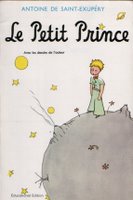My plans for an opera-free Sunday were dashed by the front page of this morning’s New York Times Arts section. Anne Midgette’s feature on the shortcomings of  America’s opera “farm teams” has my head spinning. For what it’s worth, here’s a response – argumentative, sympathetic, and defensive all at once.
America’s opera “farm teams” has my head spinning. For what it’s worth, here’s a response – argumentative, sympathetic, and defensive all at once.
Stephanie Blythe in 2005.
(Richard Termine for The New York Times.)
Concurrence
I will not deny that identifying and nurturing the “big voices” of tomorrow is difficult. Nor will I refute that we who deal with emerging artists tend to do a better job with those singers whose entire “package” comes together at an earlier age. While this bias is not deliberate, correcting it is a conundrum.
First, identification. In our annual auditions, we typically hear 15-20 voices that might fit in this category. A rare few already have enough of a skill set to benefit from our particular program. (Meaning that their languages are in decent shape, and their vocal technique is solid enough to sustain the assignment of a full-length role.) Most are still bundles of raw talent. Many are biding their time in an alternate Fach (vocal classification) until their instruments and techniques mature. Dramatic sopranos often refine their linguistic, dramatic, and musical chops while passing a few years as mezzos until the top portion of the soprano range comes under complete control. Likewise for full lyric tenors masquerading as baritones and Helden-baritones singing as basses. This is not a bad thing, and those of us who work with emerging talent recognize this path.
Then, stewardship. Ms. Midgette’s article only grazed the fact that the young artist programs in this country’s big houses are making a concerted attempt to be good stewards of these big voices. More should be made of this. Mention was made of Marjorie Owens, a budding full lyric who blossomed in the Houston Grand Opera Studio, sang her first big role with us at Wolf Trap last summer, and is now moving to the Chicago Lyric Opera Center. Just one example, but a pertinent one.
Them’s Fightin’ Words
Shared culpability. I believe that the media (broadest use of the term) are hugely implicated in this scenario. "Slight, light” singers are not just favored by training programs; they are also the darlings of magazines, newspapers, record companies and (whenever opera is lucky enough to be mentioned) television. They fit so much more nicely into our culture. Usually thinner, prettier, and perceived as more refined. Not as much a threat to our popular culture’s norms as are the messy force-of-nature talents that are bigger voices.
Success Stories. A quick read of today’s paper leaves a gloom-and-doom impression. But many big voices have been well-served by this country’s “farm team” system. In spite of the proclamations of folks like Ms. Midgette and Peter Davis (The American Opera Singer is a book-length indictment on this same subject) the American system for singer training is the best in the world. Not without its warts, but all the same, the largest contributor to the international scene. The accompanying audio file on the New York Times website glorifies mezzo Stephanie Blythe as a “hope for the future…(with the) huge thrilling voice of a golden age singer.” Stephanie received training in the Met’s young artist program, and she spent two summers at Wolf Trap. Our own history with the Big American Voice is extensive. Before Stephanie Blythe, there was Alan Held, Gordon Hawkins, Nancy Maultsby and Margaret Jane Wray. In recent years, we’ve had emerging artists Morris Robinson (also mentioned in today’s feature), Carolyn Betty, Simon O’Neill, and Stacey Rishoi. The recent Ring at Seattle Opera included nine former Wolf Trappers in its cast.
Other Paths
Have we missed some important voices? To be sure. We passed over Deborah Voigt. (And Renée Fleming, for that matter.) We’re proud of our track record (over 90% of our company members from the last 15 years are still career singers), but no one program can participate in the development of all of tomorrow’s great singers. The goal is to do a comprehensive job as an aggregate.
Jennifer Wilson, the soprano whose performances of Brünnhilde kicked off today’s article, is one that fell through the cracks. I knew Jennifer briefly when she was starting out in the Washington, D.C. area – she coached with me just a few times in the early 90’s. Clearly a significant voice, even then, but so far to go. The biggest thing that separates her from those who won’t sing on the Chicago Lyric stage is determination. Not that we want anyone to have to work so hard and wait so long, but it happens. It’s important that she didn’t give up, but it’s equally as instructive that she didn’t spend all her energy on damning the system that didn’t serve her well. She just kept singing.
The question of career paths that don’t involve singing in “the minors” is one with which I’m familiar. Every business has a pyramid structure, and opera is no different. The air gets more rarefied and the selection more rigorous with every step toward the "top." Some people fall off because the level of God-given talent (the “pipes”) can’t compete. Some have a toxic lack of work ethic. Still others realize that the itinerant lifestyle is something they can’t sustain. But there are many other ways to participate in cultural life – to inspire audiences and challenge oneself. These things don’t only happen on the stage of the Lyric Opera of Chicago.
Mozart
Is Mozart a miracle drug to be indiscriminately prescribed to all young singers? Of course not. Yes, we who work with young singers, and Wolf Trap Opera in particular, have made a big deal about Wolfgang’s suitability for emerging voices. Although I would personally broaden the circle a bit to include Handel and contemporaries, I’m sticking with the basic premise. Almost every developing voice that I’ve been involved with (including my coaching staff days at Wolf Trap, we’re talking 21 years’ worth) can both serve and be served by a few roles in this mid-late 18th century canon. Assignments must be made judiciously, and singers must be allowed and encouraged to sing with the entire voices. And pride shouldn’t get in the way of singing “comprimario” roles to gain stage experience and chops while the voice is still developing. (More about Mozart and Wolf Trap in a later entry…)
Voice Lessons
I won’t say too much, for this is an area in which I don’t participate. But judging from what we see when auditioning singers from the country’s top conservatories, this is a huge dilemma. Once a week is not enough. Once a day is more like it. In another time and place, a few generations of singers ago, that’s the way it was done. Singing is a physical act. Would you expect a gymnast to only see her coach for an hour a week? It’s crazy. Singers are flying blind so much of the time. It’s about money (teachers’ time doesn’t come cheap), it’s about time (competing pressure for students to refine languages, study culture and music history and repertoire), and it’s about schedules (yes, many teachers are still performing and have their own travel and rehearsal schedules to accommodate). I don’t know what the answer is, but too often the singers who prosper in this system are the ones with fairly unproblematic, tidy voices and techniques. The “slight, light” voices of today’s newspaper.
And Finally…
I’ve been tamping this down, but I must admit that my secondary response to today’s article was one of chagrin. I’m a realist regarding the part our company plays in the careers of today’s developing artists. We’re a single component in a large system, but our contribution is unique and independent. Ask anyone who knows us. I can’t decide if I’m disappointed that we were entirely overlooked in this survey, or if I’m relieved that we weren’t implicated in the generally disparaging tone of the report. Probably both.
The timing of this tirade is fortuitous, for our next big hurdle involves how we’re going to program opera in Wolf Trap’s large venue (the Filene Center). The discussion of larger voices has implications for this venue that don’t figure at all in discussion of repertoire at our primary venue (the small Barns). It might take a few days for me to get to this topic, for travel will be intense this week. But check back soon, and thanks for letting me vent!
 Auditions yesterday at The Barns. Nice to be on home turf. The warm and inviting acoustics of our home theatre are both a boon and a challenge.
Auditions yesterday at The Barns. Nice to be on home turf. The warm and inviting acoustics of our home theatre are both a boon and a challenge.








